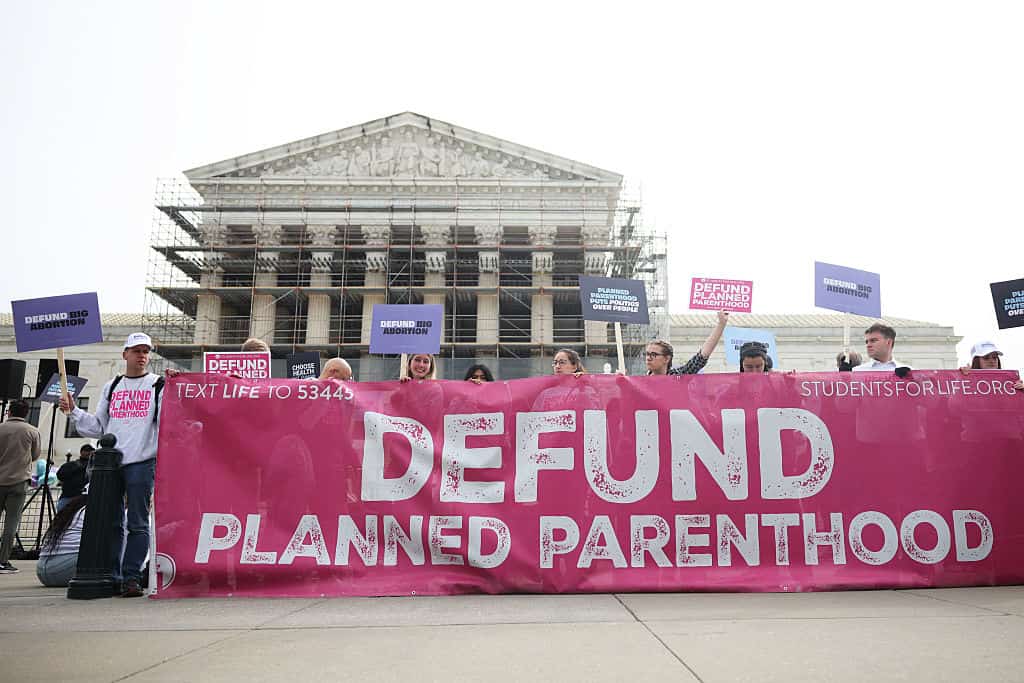Political Flip – Democrats Supported the Nomination of New Supreme Court Justice in 2016, not 2020

In 2016, Democrats were passionate and supportive of Merrick Garland, President Barack Obama’s Supreme Court nominee during the 2016 election season. However, the Democrats have now reversed course.
When Justice Antonin Scalia died in February 2016, it had a profound influence on the presidential election. As Barack Obama was an outgoing president without control of the Senate, Republicans decided to wait for the American people to decide who would win the presidency before proceeding with hearings for a new Supreme Court Justice.
On the Senate floor after Garland’s nomination, Senator Mitch McConnell said, “Mr. President, the next Justice could fundamentally alter the direction of the Supreme Court and have a profound impact on the country. So of course, the American people should have a say in the court’s direction. It’s a president’s constitutional right to nominate a supreme court justice, and it is the Senate’s constitutional right to act as a check on a president and withhold its consent.”
Democrats were incensed by the move.
“The blockade on filling a naturally occurring vacancy, in my view, is harmful to the independence of the Article Three branch,” Senator, and then Hillary Clinton vice presidential running mate, Tim Kaine said in 2016.
“(They) do pretty much everything they can to avoid acknowledging the legitimacy of our democratically elected president,” failed presidential candidate and Senator Elizabeth Warren said. “I say to you, do your job, vote for a Supreme Court nominee. If you want to stop extremism in your party, you can start by showing the American people that you respect the President of the United States and the Constitution.”
Senate Minority Leader Chuck Schumer said, “Every day that goes by without a ninth justice is another day the American people’s business is not getting done.”
“The American people deserve a fully staffed court of nine,” Vice President Joe Biden said at the time.
Ironically, McConnell’s decision in 2016 follows precedent first set down by then Senator Joe Biden. It’s even called the ‘Biden Rule.’
The year was 1992, and President George H.W. Bush was running for a second term against Governor Bill Clinton. In a statement, Vice President Biden said, “Once the political season is under way … action on a Supreme Court nomination must be put off until after the election campaign is over.”
The Democrats controlled the Senate and the Republicans the presidency. The decades-long conflict between the two parties meant that it was highly unlikely that any nominee would get confirmation during a contentious election cycle.
Senator Mitch McConnell came to the same conclusion in 2016. The United States has a government system with checks, and nowhere in the Constitution does it say that the Senate must vote on a President’s Supreme Court nominee.
But in 2020, the situation is entirely different.
The Republican party holds both the presidency and the Senate. President Donald Trump, just like President Obama, can name a new nominee to the Supreme Court. Then, it is up to the Senate to either confirm or deny. Due to the time constraints, it’s even questionable if the confirmation process could be completed by the end of the current session of Congress.
There is precedent for filling the seat as well. Surprisingly, a Supreme Court vacancy has opened up 25 times during an election cycle, and 21 times the Senate has confirmed the nominee.
There’s no doubt that this continuing conflict between the Republicans and Democrats over judges, especially Supreme Court justices, has deepened a political rift between the parties. The decision by the Republicans to not hold hearings for Merrick Garland was partly political, and the Democrats fighting against a new Trump nominee is also political.
No doubt, many wish that the country could go back to when Ruth Bader Ginsberg was nominated, with a vote of 96 to 3, as members of both parties supported her nomination and were less hung up on punishing the other party.
That’s not the case in 2020.
Photo from Shutterstock
Visit our Election 2020 page
ABOUT THE AUTHOR
Brittany Raymer serves as a policy analyst at Focus on the Family, researching and writing about abortion, assisted suicide, bioethics and a variety of other issues involving the sanctity of human life and broader social issues. She regularly contributes articles to The Daily Citizen and has written op-eds published in The Christian Post and The Washington Examiner. Previously, Raymer worked at Samaritan’s Purse in several roles involving research, social media and web content management. While there, she also contributed research for congressional testimonies and assisted with the Ebola crisis response. Raymer earned a bachelor of arts in history at Seattle Pacific University and completed a master’s degree in history at Liberty University in Virginia. She lives in Colorado Springs with her beloved Yorkie-Poo, Pippa.
Related Posts

Education Department Celebrates National School Choice Week
January 30, 2026

New York Ends Fight to Force Nuns to Pay for Abortions
January 27, 2026


